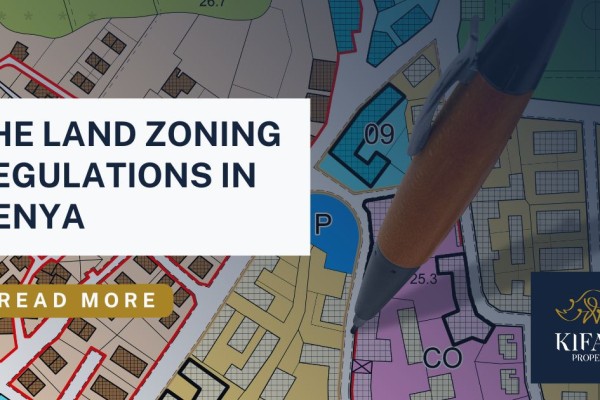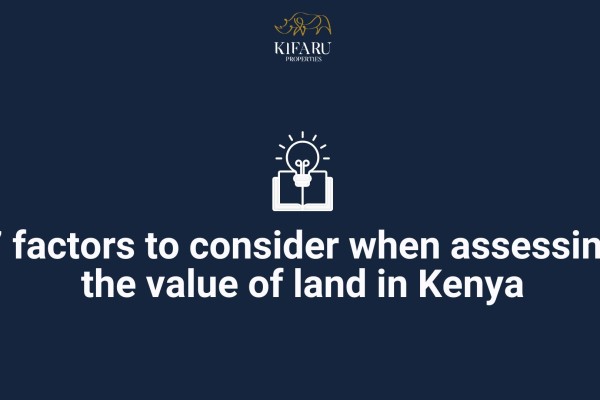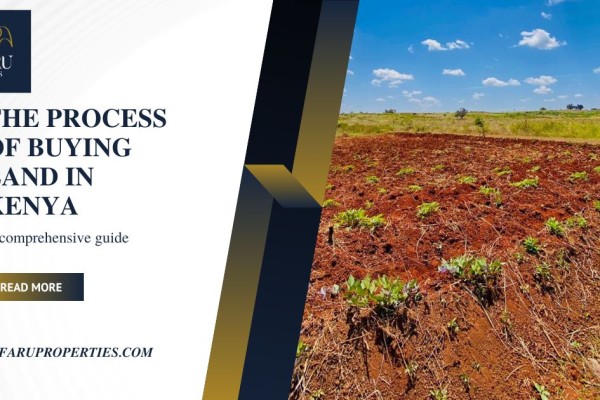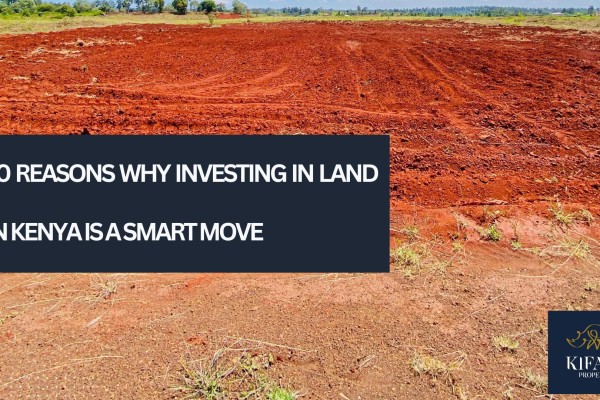- Nov 06, 2024
- Kifaru Meadows
- 464
The Benefits of Buying Land in Kenya
- High Returns on Investment (ROI)Over the past decade, Kenya’s real estate market has seen steady growth, particularly in areas around Nairobi, such as Ruiru, Kitengela, and Thika. As urban centers expand and populations grow, demand for land has been on the rise, leading to increased property values. For instance, an area like Ruiru, once considered a suburb, is now a key target for both residential and commercial projects. Buying land in these rapidly growing regions often yields significant returns on investment as property prices appreciate over time.
- Flexibility in Land UseLand in Kenya offers a wide array of usage options. Whether you’re interested in agriculture, commercial development, or residential projects, there’s flexibility in what you can do with your land. The country’s agricultural sector, for example, is robust, and owning agricultural land can be profitable given Kenya’s diverse climate. Similarly, residential land near urban centers can be developed for rental properties or subdivisions, creating passive income streams.
- Infrastructural GrowthThe Kenyan government has made considerable investments in infrastructure projects, including the Standard Gauge Railway (SGR), road networks, and ICT infrastructure, boosting the accessibility of previously remote areas. For instance, places close to major highways or transportation hubs see faster development, and landowners in such areas benefit from increased land values.
- Stability and SecurityKenya is one of East Africa’s more politically and economically stable countries, and property ownership rights are generally respected. This stability has attracted both local and foreign investors, further driving up land demand and ensuring that the value of land generally appreciates over time.
Considerations and Risks
- High Initial CostsWhile land can provide good returns, the upfront costs in popular areas are high. Urban and suburban land can be particularly expensive, sometimes making it challenging for first-time buyers or investors with limited budgets. However, payment plans offered by some developers can help spread out these costs.
- Land Ownership VerificationOne of the primary risks of buying land in Kenya is the potential for land fraud. There have been cases of buyers unknowingly purchasing land that has conflicting ownership claims. To mitigate this risk, it’s essential to conduct thorough due diligence, verify land titles, and work with reputable real estate agents or legal experts.
- Zoning and Land Use RestrictionsDifferent areas have zoning regulations that may limit how you can develop your land. For example, agricultural land may have restrictions on commercial development. Understanding these zoning laws is crucial to ensure your land can be used for your intended purposes.

Is Buying Land in Kenya Worth It?
For many investors, buying land in Kenya is a worthwhile investment, particularly in regions showing high growth potential. If you’re looking for long-term asset appreciation, Kenya’s real estate market offers favorable conditions. However, this investment requires careful planning and due diligence to avoid common pitfalls. Consulting with real estate professionals, ensuring land titles are clean, and understanding regional zoning laws are essential steps to secure a profitable investment.
In conclusion, buying land in Kenya can be an excellent way to build wealth and secure your financial future, especially if you invest in regions with growth potential. With the right approach, it is indeed worth buying land in Kenya.




